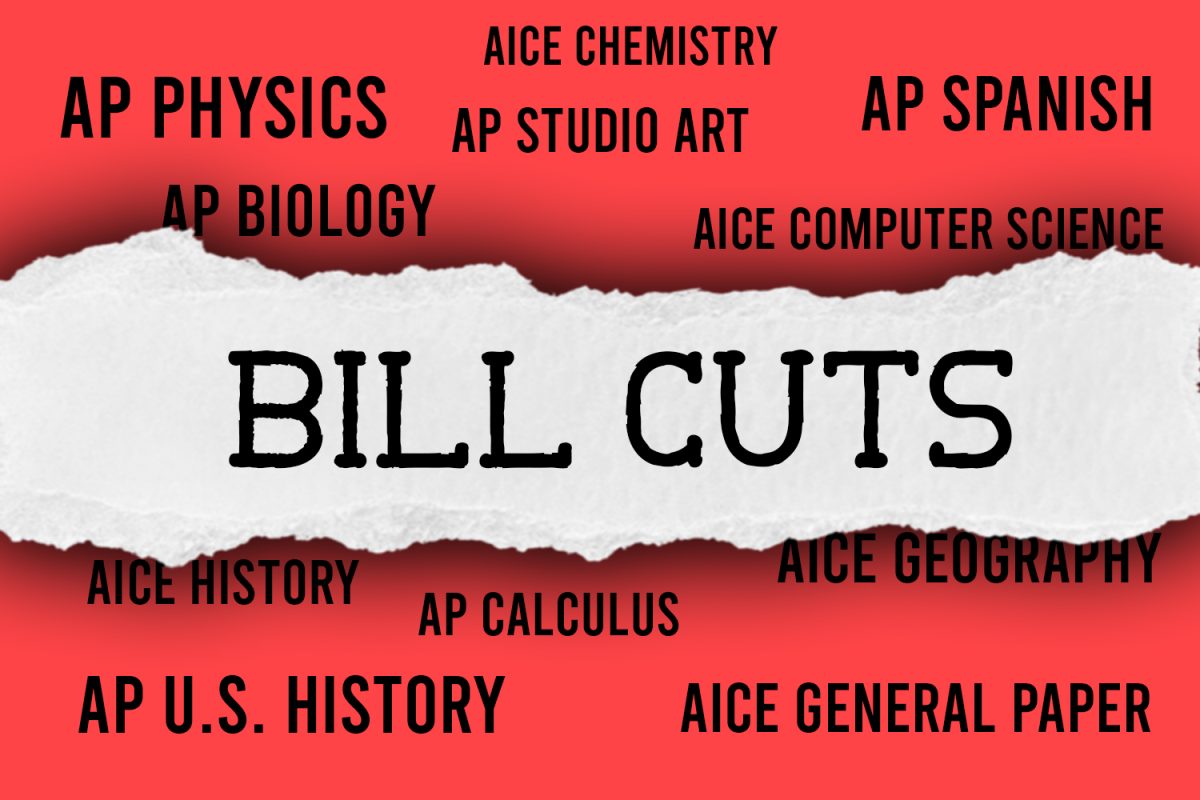A new education bill that could significantly impact college level classes in Florida has been passed. Senate Bill 7030, the companion to House Bill 5101, reduces state funding for a range of college-level high school programs, including Advanced Placement (AP), Advanced International Certificate of Education (AICE), and Dual Enrollment.
The bill, approved in Florida’s House of Representatives and Senate on April 9, will take effect on July 1, reducing the funding provided to schools for AICE and AP, per student, by up to 50%. This raises the question, how much would a 50% cut in AICE and AP be at Pembroke Pines Charter High School?
According to the Broward School District’s representative, Rep. Robin Bartleman, the district will be facing around $33 million in cuts and the Charter school system will face $1.2 million in cuts. “So your school system will have $1.2 million less to offer competitive classes,” stated Bartleman in a recent Jaguar Workshop.
PPCHS Assistant Principal Ms. Llanos, who oversees the school budget, helped break down the significance further. She states that for each student, the state pays a certain amount of money. The budget starts out with teacher salary, rental of the school, administrative fee for the county, and so on.
“The school then has to pay for each AICE and AP test a student takes, and [they] aren’t cheap. Now if there is reduced funding for AICE/AP, we are going to have to pull money from another program to compensate,” Ms. Llanos said.
To put it into perspective, there are a combined 1,817 AICE and 1,600 AP course enrollments this year at PPCHS.
Cutting funds to other programs is not the only potential consequence. Teachers and administrators believe with the school having to pay more out of pocket, the number of AICE and AP classes could shrink, while the number of students in each class grows.
AICE Psychology teacher Jillian Palacio voiced her concerns on this issue, saying that most likely, many students will apply, only a few might get in, and she will get a few classes. “We will probably have to be more selective when picking who gets into these classes,” Mrs. Palacio said. She also explained that less classes with too many students could also create gaps, which refers to when students don’t speak up or engage due to the number of other students in the class.
AICE and AP junior Volga Ozturan believes another possible outcome could very well be decreased quality of AICE and AP classes. With less funding, the bill will cause lower standards in these classes as a whole.
“The impact [of this bill] would lower exam quality and classroom quality. To give an example, AICE A Level Marine Science already has mistakes and issues in their specimen papers. I can’t imagine what a 50% reduction would do to AP classes, since they are such a big part of American education. I don’t understand how reducing funding to these college level classes will help make Florida students smarter.”
Ozturan highlights yet another potential problem: competition for getting into colleges. AICE and AP are college level classes and college preparatory classes. Having lower classroom quality while also having less classes could hinder students from getting into competitive colleges.
The bill, while passed in Florida’s Legislature, has not been signed into law by Governor Ron DeSantis yet. Ms. Llanos’s advice is to contact the state and voice your concerns over the bill.















































![Varsity Volleyball Senior Abigail Reyolds [left] standing alongside her fellow teammate and captain of the team Senior Sophia Peterseil before their game.](https://ppchsnews.com/wp-content/uploads/2025/10/ABBY-AND-SOPHIA-COVER-1200x673.jpg)














